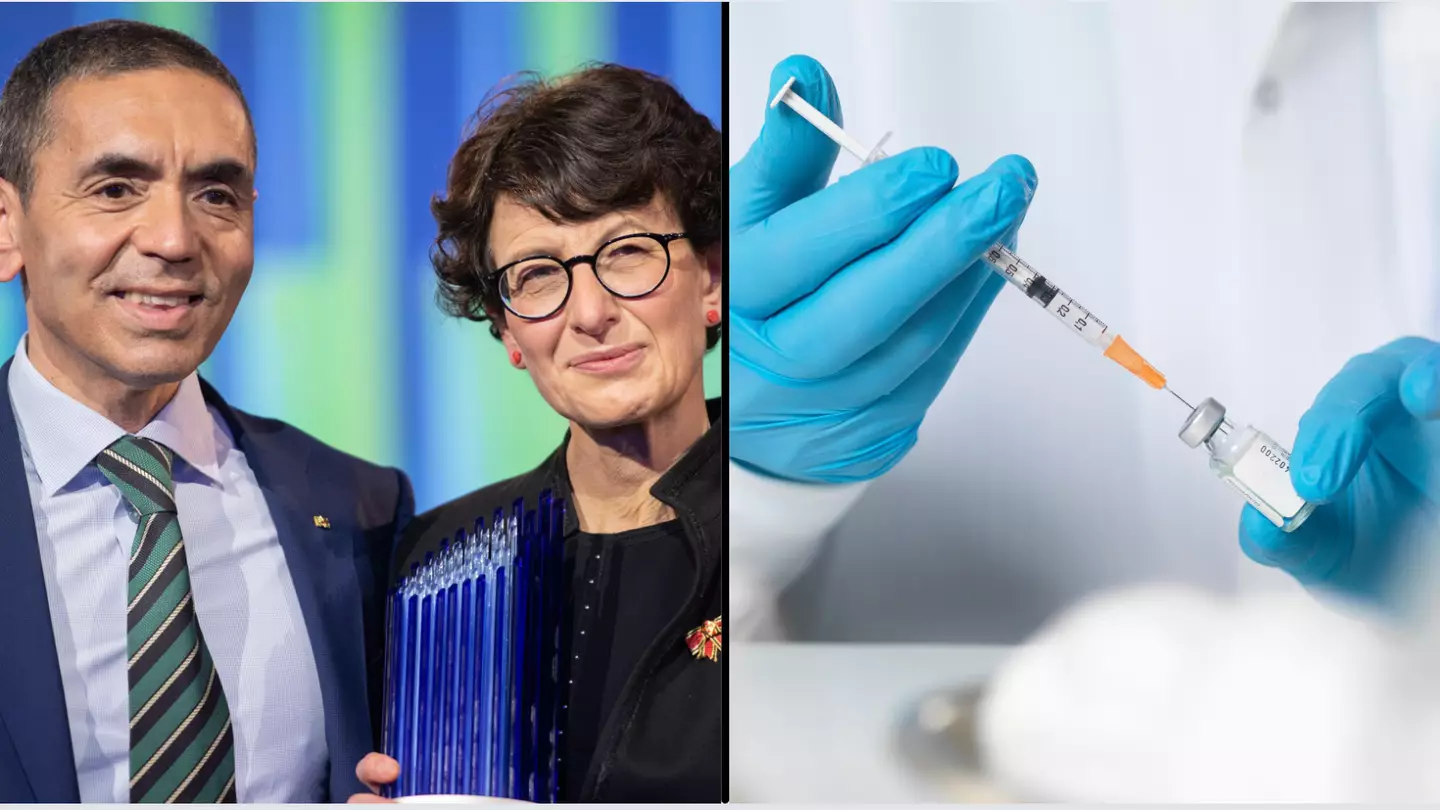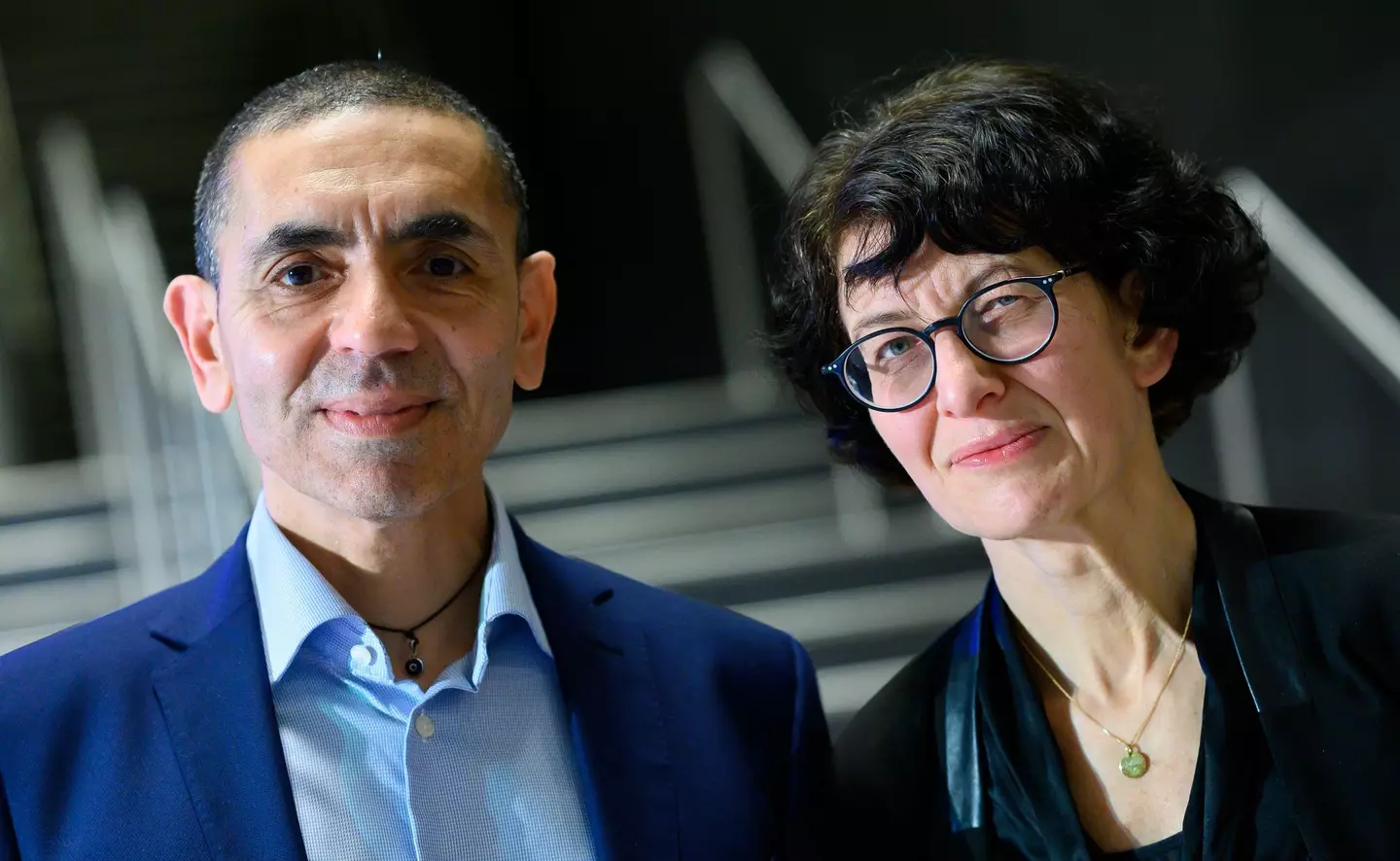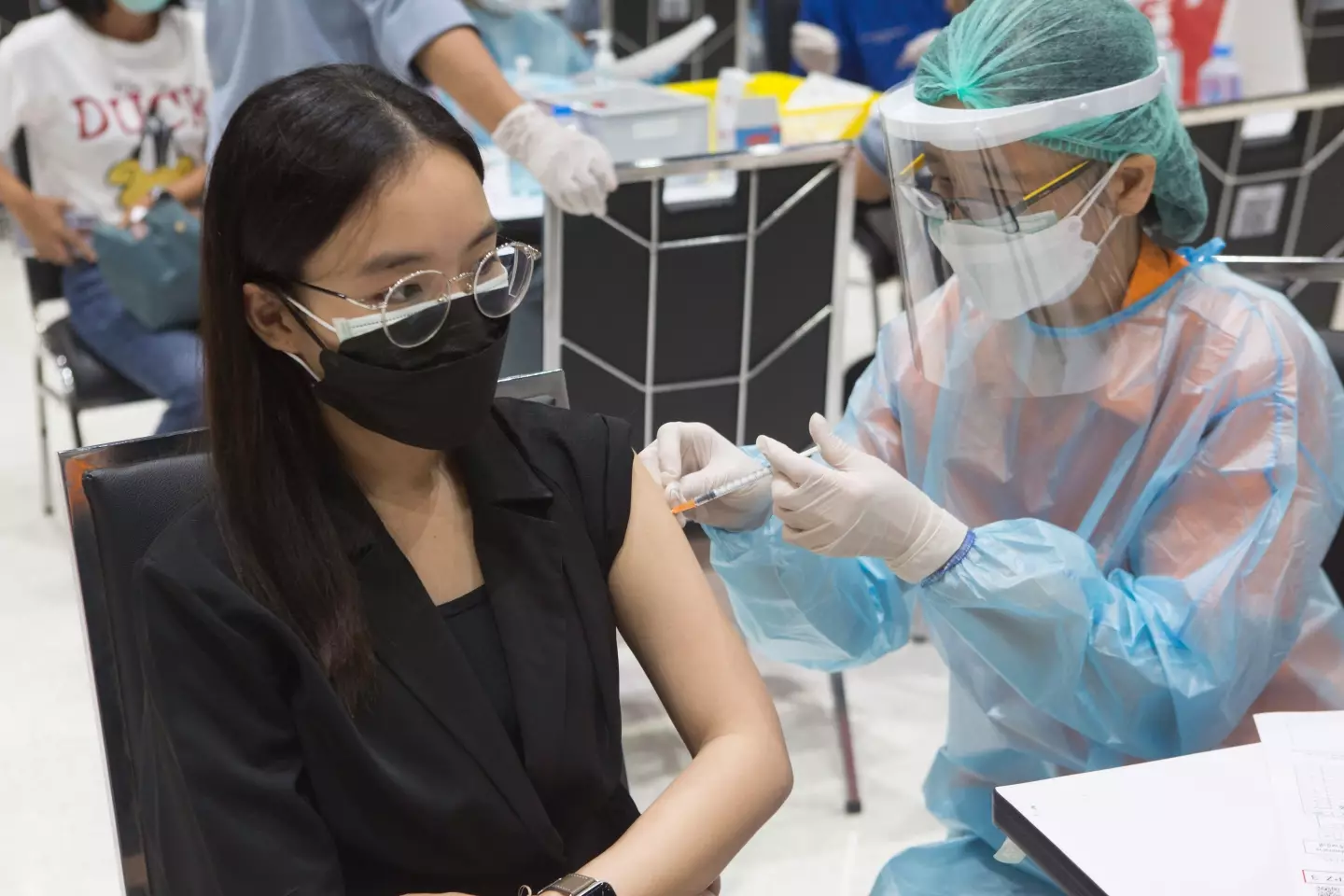
The scientists behind the Pfizer/BioNTech Covid-19 jab have revealed a cancer vaccine could be ready by the end of the decade.
The Independent reported that the co-founders of BioNTech, who partnered with Pfizer to manufacture the vaccine, Uğur Şahin and Özlem Türeci, are hopeful about their recent ‘breakthrough’ for melanomas, bowel cancer and other tumour types.
While the two were initially hesitant to announce the news, Professor Türeci said their work behind the Covid-19 vaccines led to them potentially finding a cure.
He explained during an interview with the BBC’s Sunday with Laura Kuenssberg: “What we have developed over decades for cancer vaccine development has been the tailwind for developing the Covid-19 vaccine, and now the Covid-19 vaccine and our experience in developing it gives back to our cancer work.
Advert
“We have learned how to better, faster manufacture vaccines. We have learned in a large number of people how the immune system reacts towards mRNA.”

The Covid-19 vaccine’s mRNA technology would be instrumental to the new jab as it could be repurposed to enhance the body’s immune system while attacking cancerous cells.
The mRNA Covid vaccine recreates antigens, which tells the body's system what to search for and what to attack to help ward off disease.
He said a similar approach would be used to destroy cancer cells.
Professor Türeci said: “mRNA acts as a blueprint and allows you to tell the body to produce the drug or the vaccine… and when you use mRNA as a vaccine, the mRNA is a blueprint for the 'wanted poster' of the enemy - in this case cancer antigens which distinguish cancer cells from normal cells."
When asked by Kuenssberg how long it would take for the vaccines to be ready, Profession Sahin advised ‘before 2030’.
She added that developing the Covid-19 vaccine rapidly during the pandemic helped them figure out how to roll out treatments quickly.

She said: “This will definitely accelerate also our cancer vaccine.”
According to BBC News, the two professors are currently conducting several clinical trials to see how patients respond to the cancer jab.
When asked if there was a chance the vaccine would fall through, Tureci said it wasn’t likely.
He said: "Everything we have learned about the immune system and about what we achieve with a cancer vaccine shows, in principle, the clear activity — we can induce those killer T-cells, we can direct them."
Topics: News, World News, Science, Cancer, Health